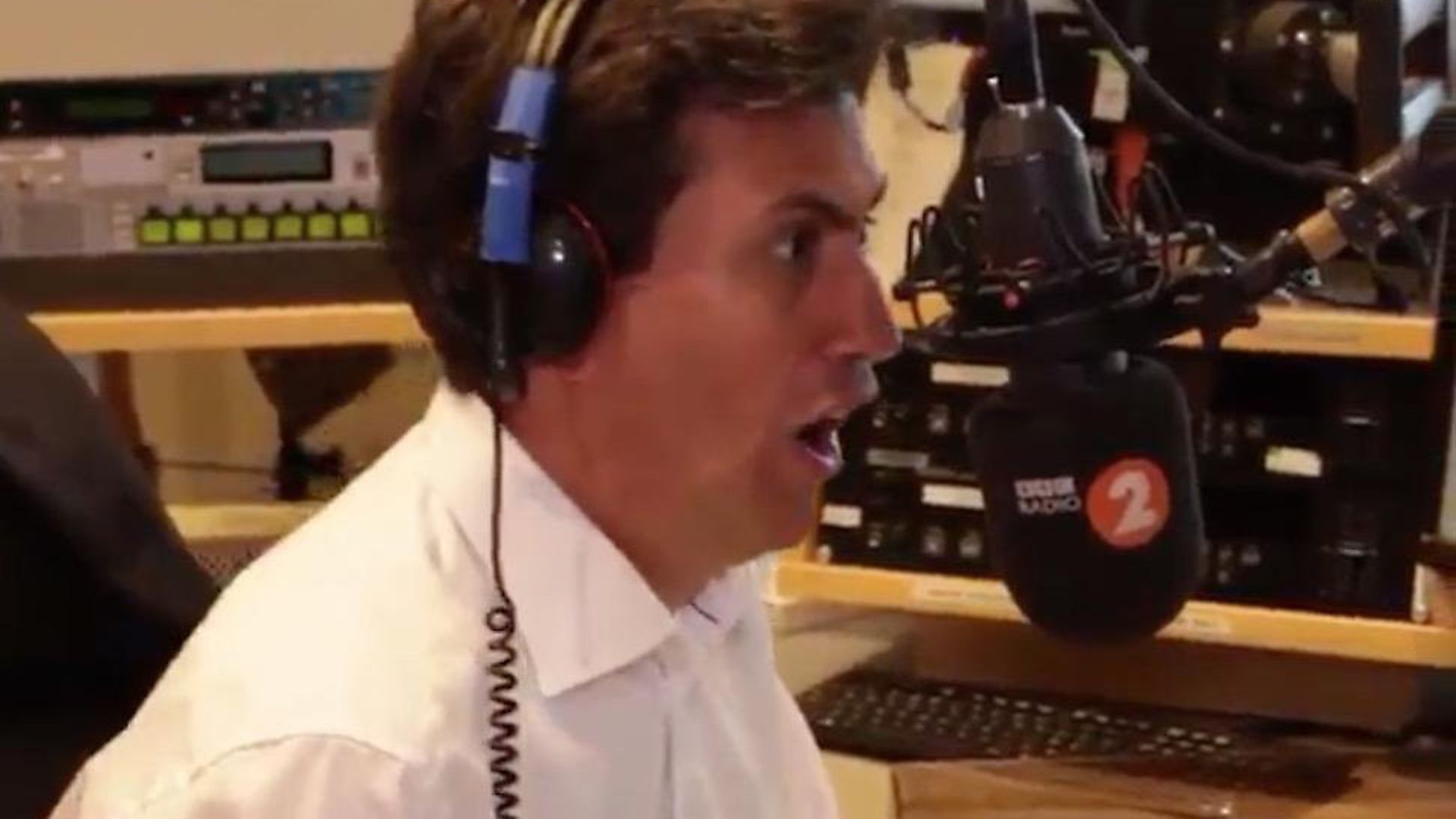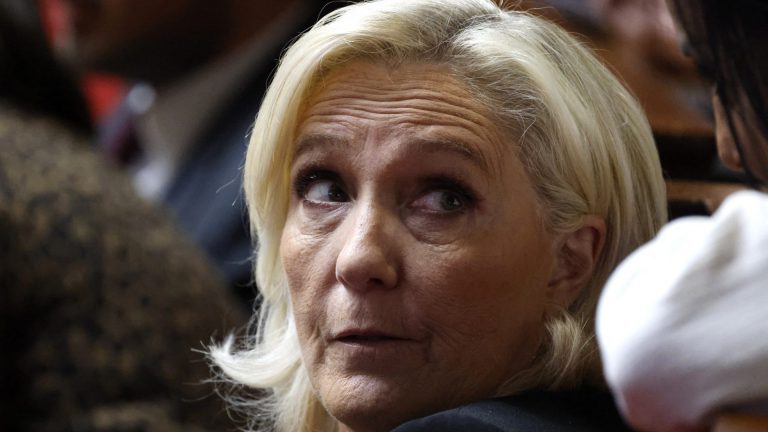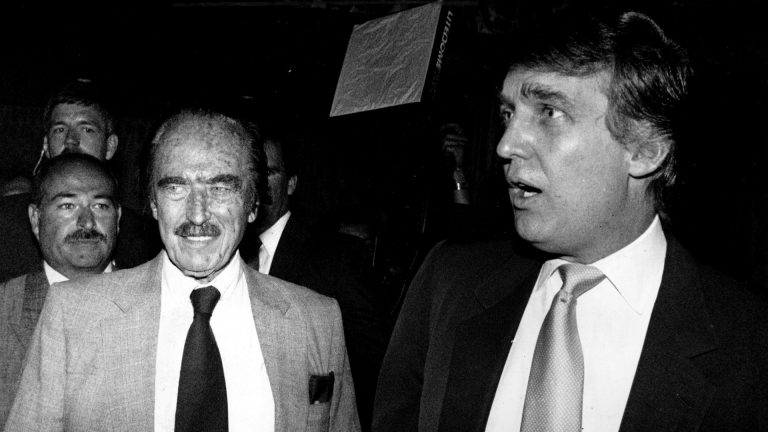
From George Osborne at the Evening Standard to Ed Miliband at Radio 2, fallen politicians are finding new platforms.

One of the features of the ITV election night was former chancellor, George Osborne’s calm, measured and supportive appraisal of Theresa May’s performance. Oops sorry, I was reading my notes upside down. In reality, Osborne, in his new role as editor of the London Evening Standard, slammed into May’s ‘catastrophic’ campaign/manifesto/very being with all the restraint of a crazed starved lion tearing through a hunk of particularly tasty zebra on the African plains.
So obviously was Osborne feasting on May’s calamity, as the Tory mandate-shredding results rolled in, I kept expecting him to excuse himself and then reappear with a napkin tucked into his collar, a knife and fork at the ready, and a little silver cruet set tucked into his breast pocket.
Next to him sat fellow guest, Ed Balls – also smirking at the Tory debacle, but, at the same time, continuing to ride high off his post-political Strictly Come Dancing showbiz-rehabilitation. For some, this was an astonishing sight – two big beasts, Conservative and Labour, both fatally maimed career-wise in different ways, then reborn and restyled as poster boys for a new kind of political afterlife.
After Balls lost his seat in the 2015 election, he endeared himself to the nation with his singular interpretation of ‘dancing’, particularly his Gangham Style routine, which was eerily reminiscent of a sub-par mime artist being thrown against a wall and brutally Taser-ed. Elsewhere on the show, Balls either moved as though he were fashioned from random bits of broken Meccano stuck together with putty and old chewing gum, or flailed about, as though trapped in a nightmare, where he must attempt to climb out of a gigantic invisible sock. Always suckers for a plucky underdog, the British public warmed to the former minister, which teamed with a mysterious vengeful ‘Make him suffer’ vote rumoured to emanate from the Westminster area, led to Balls lasting several weeks, emerging as an unlikely pan-stick-ed people’s champion.
Then there was Osborne, who was sacked by the newly anointed May. Osborne’s appointment as newspaper editor provoked an avalanche of scorn and derision, not least from members of the media, who may have nursed wild dreams of an actual journalist getting the job. When he resigned from parliament, Osborne also got people’s backs up by arrogantly saying that he was leaving politics ‘for now’ (Lean back and breathe in that sense of over-entitlement). However, it soon became clear that Osborne didn’t intend to be a mere passive figurehead or placeholder – among other things, he stirred things up by telling Andrew Marr that May was a ‘dead woman walking’ and published a scathingly amusing Standard front cover on the Tory/Democratic Unionist party coalition deal.
Should people be wary of such post-political reinventions? Are these men still ambitious wolves in light entertainment or media clothing? Balls may have decided to re-brand as ‘cuddly’, relaunching himself as a kind of shimmying middle-aged FTSE-aware teddy bear, but that’s a long way from his persona as shadow chancellor, when his people-managing skill-set seemed to range from ‘brusque’ to ‘vicious’, to ‘human knuckleduster’. Likewise, Osborne can bravely snipe from the side-lines at May all he likes, but arguably it still whiffs a bit of sour grapes. Moreover, lest we forget, as chancellor, Osborne, the self styled ‘Great Truth Teller’ and ‘Giantess Slayer’ was in fact ‘Monsieur Austerity’.
Regardless, it seems interesting that these former pivotal government figures aren’t contenting themselves with hopes of a seat in the Lords and a bitchy political memoir – otherwise doomed to wander as woeful Westminster ghosts, wailing and clanking their dragging chains as they brood over their fate. Instead, they’re piling into their post-political lives with gusto, and even (whisper it) a modicum of wit and daring.
If there’s a new breed of political ghost in the machine, then perhaps yet another former Tory chancellor, Michael Portillo, provided the template. When Portillo famously lost his seat to Labour’s Stephen Twigg in the 1997 election, he was photographed standing behind Twigg, with a face crumpling like bad Westminster origami, taking his defeat like the good sport he so clearly wasn’t.
‘The Portillo Moment’ became a defining motif, not just for the election, but for the definitive collapse of the old calcified Tory regime. Fast forward a few years, and Portillo was established on Andrew Neil’s This Week show as a charming, erudite political pundit, with side-lines as a journalist and railway fancier. Alan Johnson (who immediately stood down as an MP when the recent election was announced) appears to have firmly reinvented himself as a political pundit/memoirist in a similar fashion, except for the small but telling detail that everyone already liked Johnson.
Meanwhile, over on Radio 2, former Labour party leader, Ed Miliband, filled in for Jeremy Vine on his show, even inviting brother, David, the president of the International Rescue Committee, on for a deliciously tense phone chat that mainly centred on refugees and ancient family history – mysteriously steering clear of such topics as, say, Labour leadership battles, union block-voting, and figurative fraternal daggers sticking out of backs. In all honesty, the conversation was a tad stiff, though a sudden eerie silence turned out to be technical fault, rather than a gruesome Beckett-esque metaphor for the enduring gulf between the two brothers. On the plus side, Ed got on incredibly well with the bloke from Napalm Death.
Indeed, the post-political reinvention doesn’t always go to plan. One thinks of Lembit Opik, the Liberal Democrat, who lost his seat in 2010. In the aftermath, Opik attempted to become a stand up comic: I say ‘attempted’ – from what I can glean from the reaction, the ‘stand up’ bit went fine, it was the ‘comic’ bit that let him down. Around the same time, Opik could be seen on a celebrity edition of Come Dine with Me, doing something horrific and unpalatable with Stilton, and giving the ‘Glad Eye’ to fellow diner, Jodie Marsh, who failed to give it back. Further In-depth research (translation: a quick peek at his Wikipedia page) reveals that Opik’s recent post-MP activities include an appearance in a comedy play at Edinburgh festival (playing himself), dancing around in a music video, and an outburst in 2013, when he reasserted his long-held concerns that asteroids would wipe out the Earth.
In terms of reinvention, there are also those who emerge from the shadows of the past to react to matters of national crisis, which in recent times usually means matters relating to Brexit. Erstwhile Tory grandee, Michael Heseltine was sacked from his government advisory roles when he rebelled against Article 50 in the Lords. In a similar fashion, former prime minister, John Major was recently moved to publicly decry Theresa May’s coalition deal with the DUP, saying that it threatened the hard-won peace in Northern Ireland.
Then there are the likes of former prime minister, Tony Blair (much criticised for raking in his post-prime minister fortune) and former Labour party spokesman, and New European editor at large, Alastair Campbell, and all those rumours of a potential new centrist-inclined Brexit-fighting party that continue to swirl around. Both Blair and Campbell are notable for having retired from political life, while simultaneously not seeming to have retired very much at all. Which, just like Osborne’s determined May-baiting, could prove rather useful in times to come.
Certainly, at a time when the Labour party’s official Brexit stance continues to be cagey and oblique (I’m being polite – considering the huge youth/Remain vote they garnered in the last General Election, I’d actually call it insulting and inexplicable), for some of us, it’s a crumb of comfort that some of the old Labour guard are prepared to stand up and publicly, explicitly oppose the chaotic, ruinous Tory Brexit, despite the aggro they get. In these cases, it seems to be less of a reinvention, and more of a rebirth, a reinvigoration and re-sharpening of political instincts that never really went away. In this fast-paced ever-changing political times, it seems that not only are personal reinventions likely to come thick and fast, so too might the different forms they take.









